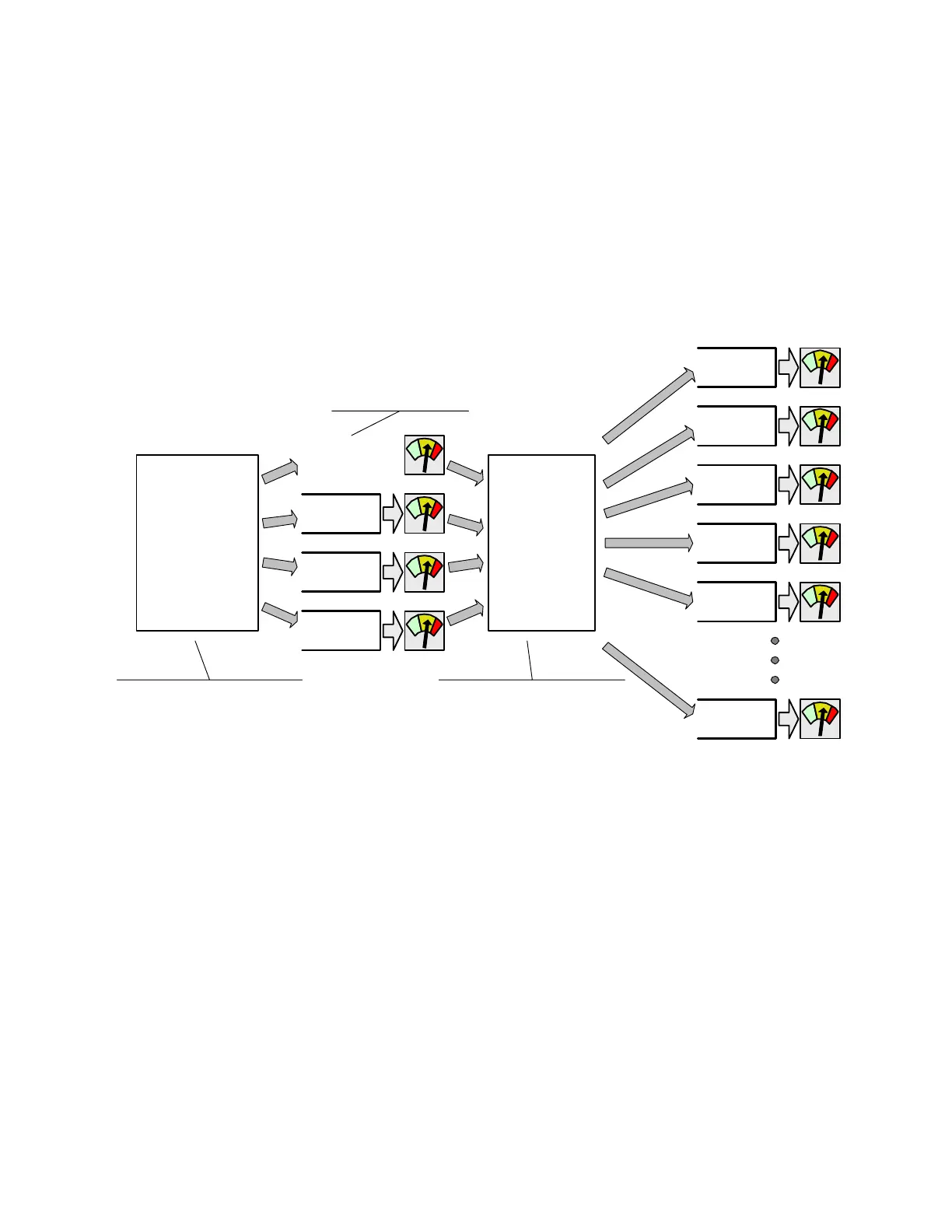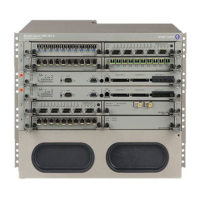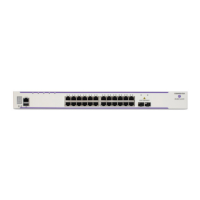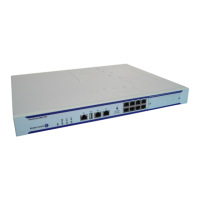Services
7750 SR OS Services Guide Page 31
multipoint shared traffic, but that is discussed in the following section.) The shared queue
parameters that define the relative operation of the forwarding class queues are derived from the
Shared Queue policy defined in the QoS CLI node. Figure 2 demonstrates shared unicast queuing.
SAP or SLA profile instance multipoint queuing is not affected by enabling shared queuing.
Multipoint queues are still created as defined in the ingress SAP QoS policy and ingress
multipoint packets only traverse the ingress forwarding plane a single time.
Enabling shared queuing may affect ingress performance due to double packet processing through
the service and shared queues.
Figure 2: Unicast Service Queuing With Shared Queuing Enabled
Service
Queue
Service
Queue
Service
Queue
Dest A
Queue
Dest B
Queue
Dest C
Queue
Ingress
Forwarding Plane
First Pass
Queue Decision
Based on QoS
Policy Service
Queue Mapping of
FC and
Forwarding Type
Ingress Policer for
RT Traffic
Ingress
Forwarding
Plane Second
Pass
Queue Decision
Based
on FC and SF
Destination
Dest D
Queue
Dest E
Queue
Dest n
Queue
QChip Header Fields:
PSM = Use CIR state for forwarding
counters
MBS = Set to MBS or LPMBS based on
priority of packet
SHL = Set to High or Low based on priority
of packet (discard counter selection)
WRED = Set to High or Low based on
Forwarding Class of Packet (?)
Stat-ID = Unique to service queue
GYR = Will be marked by QChip when
scheduling packet from service queue
QChip Header Fields:
PSM = Use SLH flag state for forwarding
counters
MBS = Set to MBS or LPMBS bas ed on GYR
marking of packet from the service queue
SHL = Set to High or Low based on the GYR
marking of the packet from the service queue
WRED = Set to High or Low based on
Forwarding Class of Packet (?)
Stat-ID = Unique to VoQ queue
GYR = Preserved from the GYR marking of
the packet from the service queue
PIR s et to m inimize jitter, Second
Pass discards Out-of-Contract

